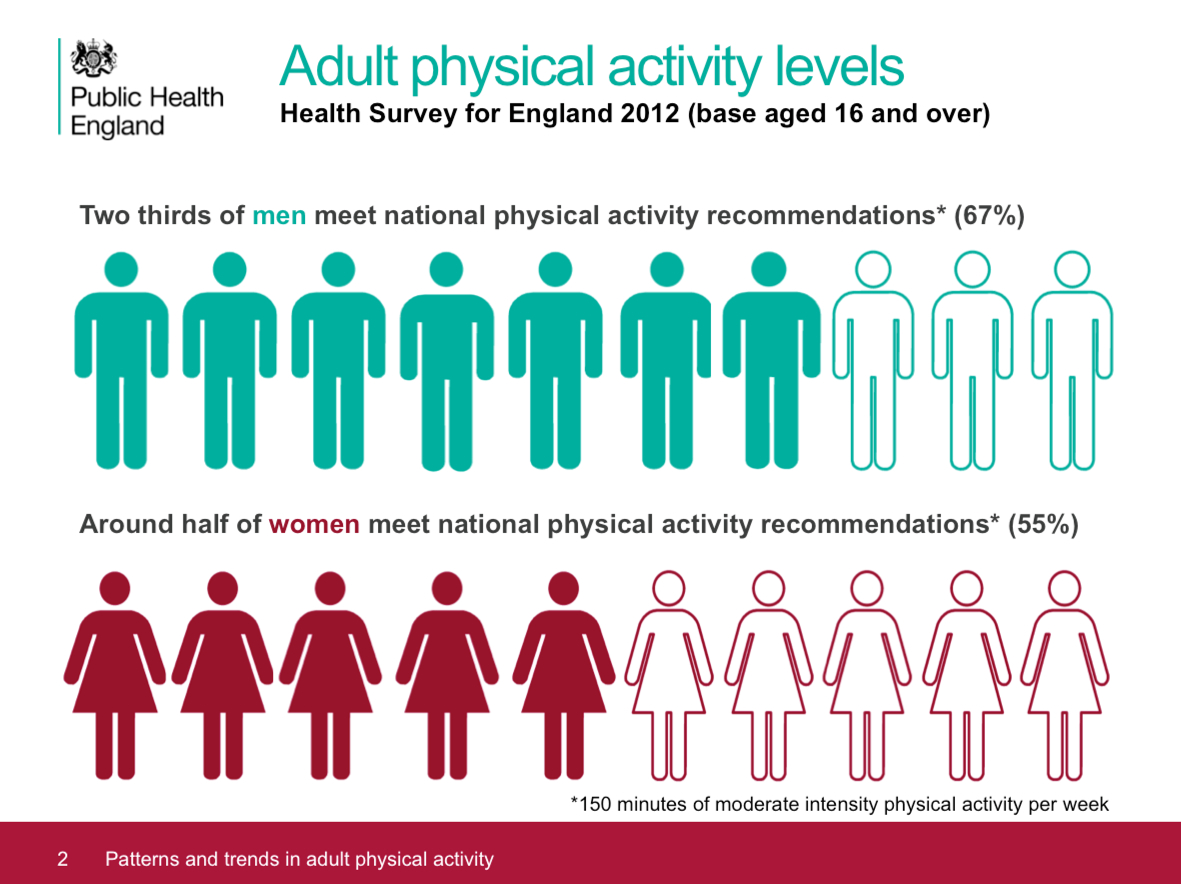Changing patterns of physical activity
Technological development and urbanisation bring significant shifts in the patterns of daily activity that can reduce the amount of energy people expend in their normal daily routines.

Slides: PHE Adult physical activity slide set – July 2015 [5]Snowdon [6] notes:
If one looks at day-to-day exercise and occupational physical activity, it becomes clear that lifestyles have become more sedentary. The transition from manual labour to office work saw jobs in agriculture decline from eleven to two per cent of employment in the twentieth century while manufacturing jobs declined from 28 to 14 per cent of employment (Lindsay, 2003) [4]. Britons are walking less (from 255 miles per year in 1976 to 179 miles in 2010) and cycling less (from 51 miles per year in 1976 to 42 miles in 2010).
Only 18 per cent of adults report doing any moderate or vigorous physical activity at work while 63 per cent never climb stairs at work and 40 per cent spend no time walking at work (British Heart Foundation, 2012b: 58-59) [3]. Outside of work, 63 per cent report spending less than ten minutes a day walking and 53 per cent do no sports or exercise whatsoever (ibid.: 52-4). Add to this the ubiquity of labour-saving devices and it is clear that Britons today have less need, and fewer opportunities, for physical activity both in the workplace and at home."